Loving like Jesus … (03/27/16)
You know, even though I am not a Christian, I DO adore the teachings of Jesus Christ in the Gospels. And the reason why I adore them is NOT because they are somehow my personal ticket to an eternal life of eating grapes and strumming lyres with the angels after I die (I prefer mangos & folk/house music these days anyway) … No, the reason why I love the teachings of Jesus — the reason why I adore his Way & his Truth & his Life — is because I have radically lived them for the past 11+ years of my life, and they have brought me a far greater Joy & a far deeper sense of Peace than I ever thought possible beforehand …
Now I will admit that I have screwed his teachings up from time to time (Heck, I’ve actually screwed them up a lot), and yet every single time I have had the humility to set aside my own desires and the courage to reach out and actively Care for another being (especially when there was nothing at all in it for me), it was I who was the greatest benefactor thereof … It is was I in those moments who felt real Bliss … it was I who was (inadvertently) granted entrance into what Jesus called “The Kingdom of Heaven.”
Now I am going to leave that information pretty much just sitting there for you … I am not going to give you any specific tips or hints on how you can experience this absolutely brilliant State of Being (primarily becasue I have absolutely no idea about anyone’s path thereto other than my own) … AND YET that having been said, I WILL offer this one jump-starter tip to living a life in harmony with HIS most beautiful Way — a tiny tip that will indeed provide a clear Way for every single person out there (regardless of your personal religious beliefs, or even your possible lack thereof) …
And that tip is this:
To be like Jesus and know his Bliss — GO VEGAN!
That’s right … You heard me … Jesus was (in all likelihood) a vegan. Now of course no one has rock-solid proof about this idea one way or the other, AND YET the Bible does indeed fully support the theory*, AND the theory does indeed illuminate Jesus in BY FAR the most compassionate and BY FAR the most loving light … After all, what kind of a Savior preaches peace and humility and then goes out and violently (& unnecessarily) destroys the lives of innocent sentient beings?!?!
Not the kind of Savior I want anything to do with, that’s for sure …
Peace today … Peace to ALL.
*P.S. For those who are interested, I will clarify the relevant passages from the Scriptures at the bottom of this post.
Passage #01 – Luke 22:7-8 does indeed have Jesus telling his disciples to prepare the Passover meal, and yet interestingly enough it never once has him telling them to obtain, cook or serve a Passover lamb therewith. Indeed, if we read the telling of the tale of the Last Supper, this lamb is completely missing from the story! In fact, there are no scripture passages in the entire Bible where Jesus himself actually ate lamb, which he would most assuredly have eaten at Passover – had he not been vegan. In fact, in the Bible we see Jesus eating on the Passover exactly twice, and curiously enough neither time is lamb involved at all; with Jesus and the disciples instead partaking only of unleavened bread at those celebrations.
*Passage #02 – Luke 24:41-43 does indeed show the disciples giving Jesus “a broiled fish and some honeycomb”, and yet then it also notes that “he took it and ate it in their presence” – not “them”, mind you, but “it”. Now, we can draw the conclusion that Jesus made the relatively compassionless choice to eat the fish and abandon the honeycomb, and yet according to a literal reading of the scripture he most certainly did not eat both of them. Of course, we are also allowed to draw the opposite inference; namely, that he abandoned the fish and ate the comb. And it is this interpretation that is actually much more in alignment with the Messianic “prophecy” of Isaiah 7:15, which states quite clearly that, “By the time he knows enough to refuse evil and choose good, he [the Messiah] will eat only butter and honey.” (Granted, neither butter nor honey is vegan sustenance, and yet seeing as how Jesus ministry had as its primary purpose the complete overhaul & radical reformation of the Old Testament, even this verse can be seen to indirectly support his probable veganism.)
It might also be of interest to earnest students of scripture that this story is only told in the Gospel of Luke – and this, despite the fact that the authors of the other Gospels are present in the tale. It is also interesting that Luke tells the same story again in the 10th chapter of the book of Acts, and yet he tells it quite differently when he does so (not mentioning fish at all in the second telling) — and that when John describes the same event in John 20, Jesus is seen actually eating nothing at all.
*Passages #03 & #04 – Matthew 14:13-21 & Matthew 15:32-39 (see also parallel passages in Mark 6:30-44 & Mark 8:1-10) … These two popular texts both have Jesus telling his disciples to feed two large groups of followers (first “the 5000” and later “the 4000”) and both times fish are mentioned as one of the foods provided (“two fish” in Matthew 14:17 & “a few fish” in Matthew 15:34). On its face, this would indeed seem to support the contention that Jesus approved the eating of meat, and yet there is much more to these verses than first meets the eye …
Initially, it is interesting to note that some scholars (Rosen and Knicely among them) contend that “fish” are not present in these texts at all – that in actuality the Greek word for “fishweed” (a form of dried seaweed) has been mistranslated as “fish” in these verses. While it is true that the ancient Greek words for seaweed (φῦκος / fukos + μνίον / mnion) are not specifically found in the Bible’s ancient manuscripts, it is just as true that such a mistranslation could very easily have occurred – and it is most certainly true that dried fishweed would be far more likely than fish to be served in a basket of bread. Indeed, a type of “fishweed” even remains a popular food to this day among coastal Palestinian peasants – people quite similar to the ones to whom Jesus was speaking in these stories.
It is interesting to note as well that both Biblical feedings took place on the shoreline & that at least a few of Jesus’ disciples were fishermen by trade, meaning that if people had truly wanted to eat fish, they simply would have had to go and catch some for themselves. Indeed, a careful reading of Matthew 14 shows that Jesus only divided the loaves of bread and only gave bread to the people gathered there – and that afterwards, the baskets were only filled with remnants of bread – not fish.
Additionally, more than a few scholars have noted that there is quite a bit of evidence to suggest that the original story never included fish at all. Indeed, the earliest pre-Gospel accounts of the feed-the-masses stories do not include fish, and Jesus himself never mentions fish when later referring to those events (see Matthew 16:5-12, Mark 8:19-20 & John 6:26) … Finally, it is worth remembering that Jesus called his first disciples by asking them to cease fishing and follow him instead (see Matthew 3, Mark 1 & Luke 5); clearly resembling his later calls to tax collectors, prostitutes and others engaged in activities not in harmony with his ministry’s message of Love & Compassion to “sin no more”.
As such, it seems much more likely than not that neither “fish” nor “fishweed” were present in the original telling of these tales, but rather that – just like the last 12 verses of the Gospel of Mark and the last chapter of the Gospel of John – scribes added words to the original texts for their own religious purposes (in this case, to insert the Greek word “fish” [ixous] – whose letters formed a then-popular acronym for “Jesus Christ God’s Son Savior”).
*Passages #05 & #06 – John 2:13-16 & Matthew 21:12-13 (see also Matthew parallels at Mark 11:15-17 & Luke 19:45-46) … While some critics claim that these passages represent a Biblical contradiction – with John’s “Temple cleansing” occurring near the beginning of Jesus’ ministry, and the nearly identical “cleansing” found in the Synoptic Gospels occurring some three years later near his ministry’s end – many scholars are of the different opinion that these passages show Jesus actually removing the soon-to-be-sacrificed animals & their human “masters” from the Temple on two separate occasions. More importantly, when we look more closely at these passages, a few interesting yet oft-overlooked facts are revealed …
First of all, it is intriguing to see that it was innocent animals that Jesus freed from the Temple (in effect a slaughterhouse in Jesus’ day) in the 2nd chapter of John – chasing them out with a self-made whip – echoing the powerful wisdom of Hosea 6:6-10 as he did so: “I desire mercy; not sacrifice” … Secondly, it is just as interesting to realize that the word “thieves” Jesus uses to repudiate those in the Temple who are changing currencies &/or selling animals for sacrifice is actually the Greek word “lestes” in the ancient manuscripts (Strong’s #3027) – a word that did not indicate a mere “thief”, but rather described a brutally violent “marauder; one who exploits the vulnerable with violence”; a term that quite aptly describes every single slaughterhouse worker to this day.
[More support for this definition comes from two other instances in the Bible where the same Greek word is found – first, Jesus’ not-so-subtle criticism of the violent group of heavily armed “thieves” who came to haul him off to his crucifixion (Luke 22:52 & Matthew 26:55) and second, to describe the two “thieves” who were later crucified with him on Golgotha (see Mark 15:27 & Matthew 27:44 – remembering that crucifixion was a particularly painful form of execution that the Romans reserved for political insurgents &/or violent criminals)]
*Passage #07 – John 21:5-14 … Admittedly, this particular passage – more so than the previous six — does indeed seem to have Jesus openly supporting the eating of fish, and yet proponents of this opinion should also consider the following: first, please note that most scholars are in agreement that the entire 21st chapter of John was added to that Gospel many years after it was originally penned, and secondly, please note that nowhere in this passage does it say that Jesus himself ate the fish he apparently offered to his disciples. Finally, it is especially intriguing that the disciples caught exactly 153 fish here, considering the fact that numbers in most if not all Biblical texts were placed purposefully therein by their authors, and yet the significance of catching exactly this many fish is a topic of much depth best reserved for another day.



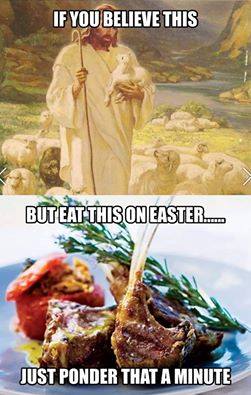
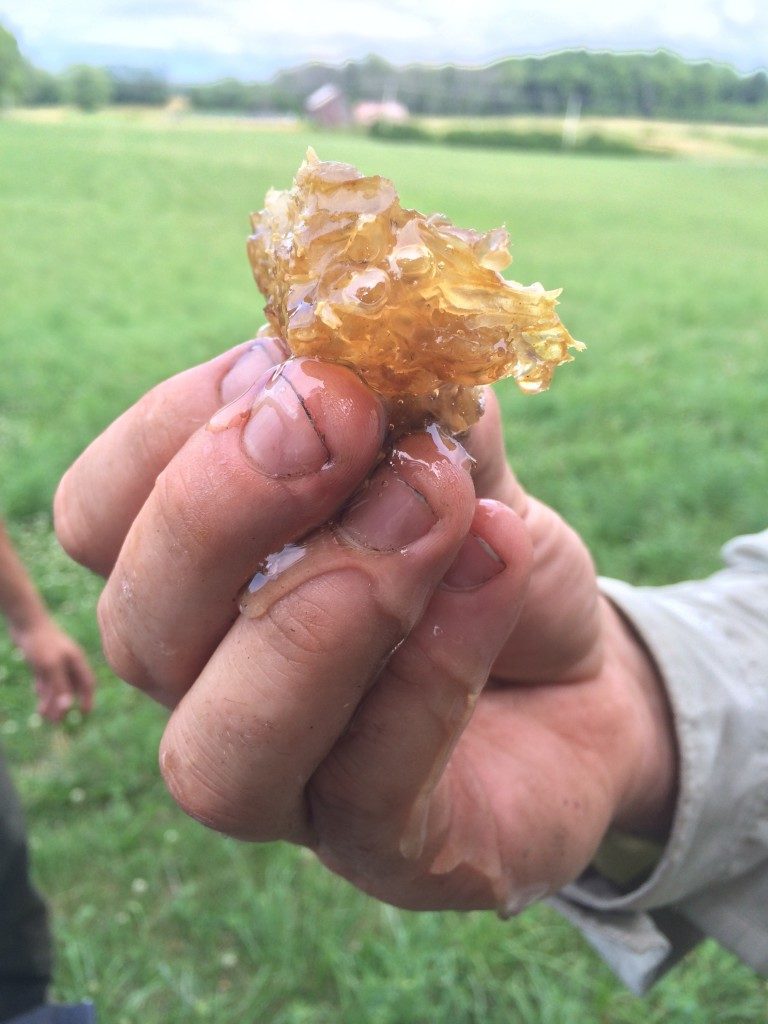
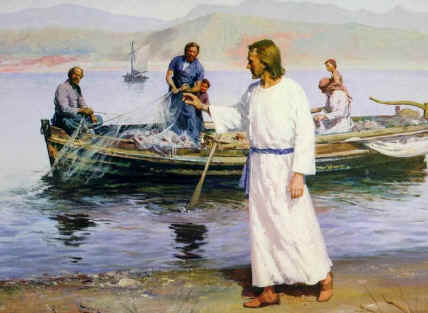
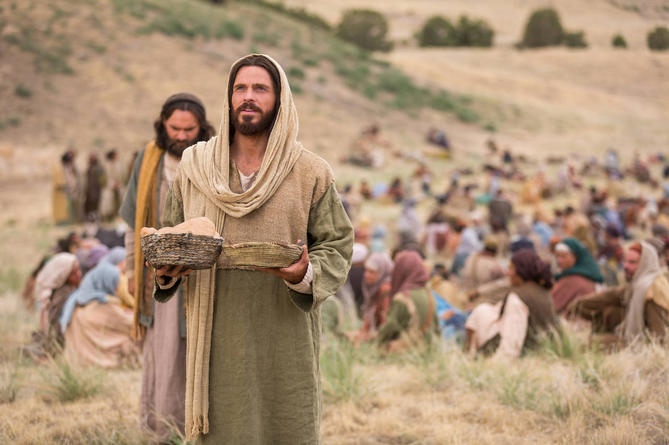
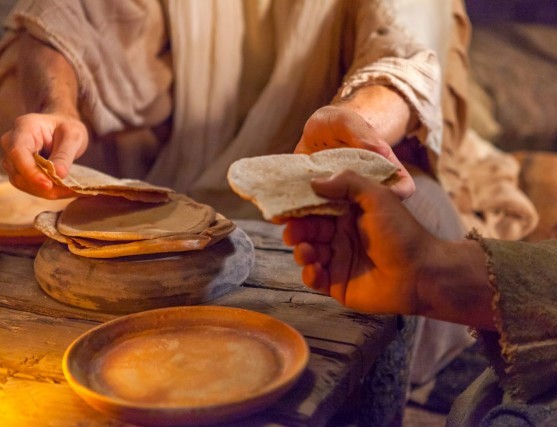
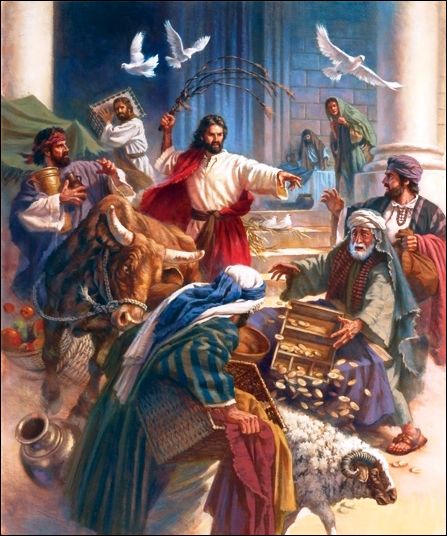



 ;
;